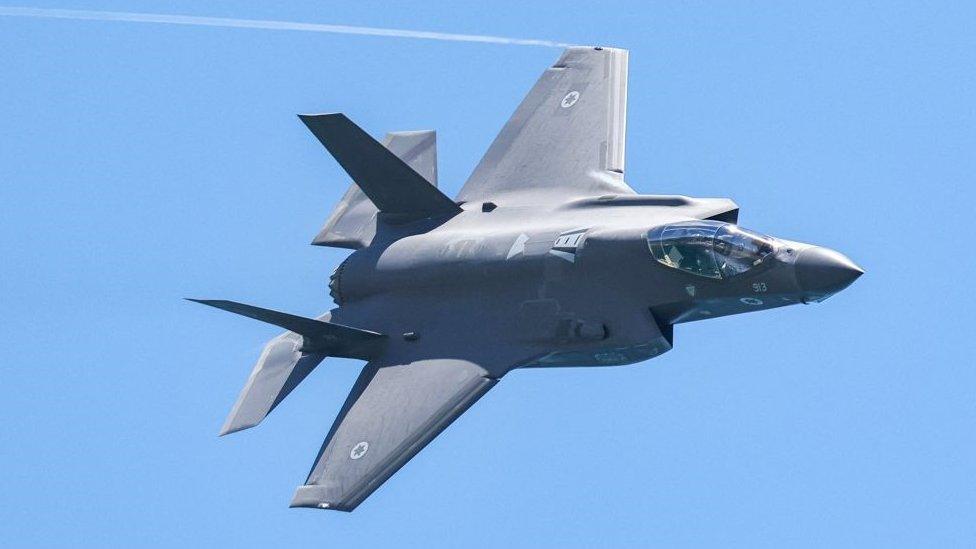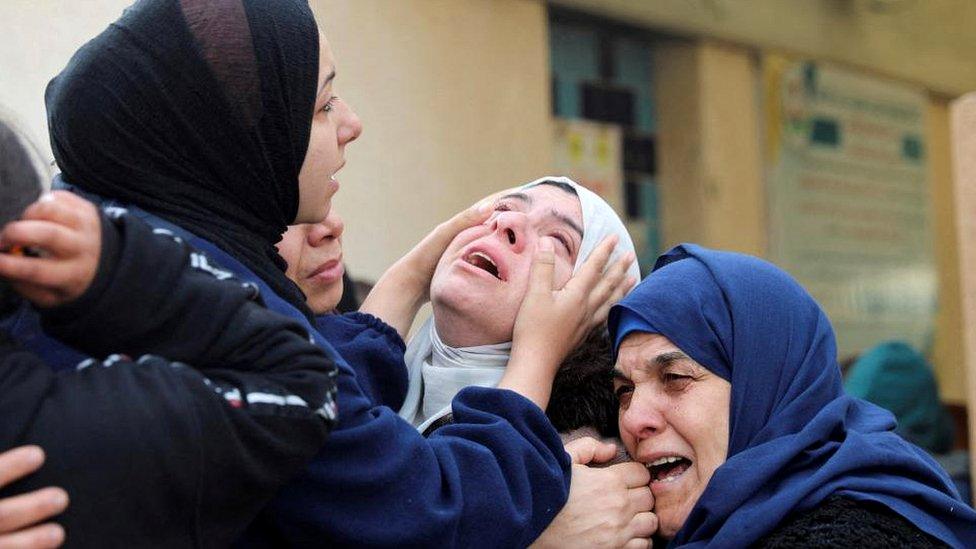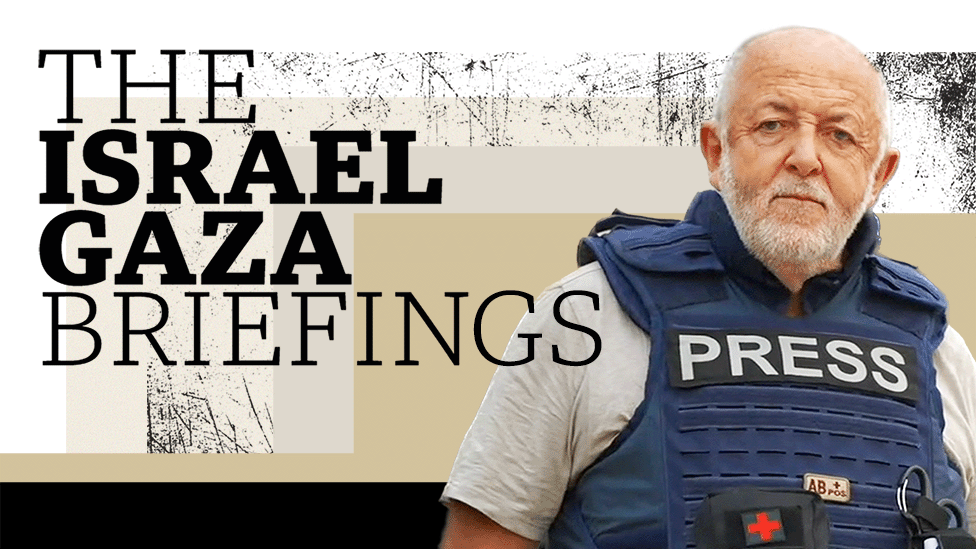Dutch court orders halt to F-35 jet parts exports to Israel
- Published

The US-owned F-35 parts are stored at a warehouse in the Netherlands and then shipped to countries, including Israel
A Dutch appeals court has ordered the government to block the delivery of parts for F-35 fighter aircraft to Israel over concerns they are being used to violate international law.
The court sided with human rights groups who argued the parts provided from a Dutch warehouse contributed to law violations by Israel in Gaza.
Israel denies committing war crimes.
The Hamas-run health ministry in Gaza says more than 28,100 Palestinians have been killed in just over four months.
Israel launched its operations in Gaza after about 1,200 people were killed by Hamas on 7 October, who also took 253 people hostage.
"It is undeniable that there is a clear risk the exported F-35 parts are used in serious violations of international humanitarian law," the Appeals Court in The Hague said.
"Israel does not take sufficient account of the consequences for the civilian population when conducting its attacks," the court added.
The Dutch government has to comply with the order within seven days, but it could launch an appeal at the Supreme Court.
The case against was brought by several groups, including the Dutch affiliate of Oxfam, in December.
This was after the Dutch government decided that the export license for F-35 parts to Israel could continue despite Israel's siege on Gaza.
A lower court had previously ruled that their export was primarily a political decision and that judges should not intervene, even though it said it was likely that F-35s contributed to violations of the laws of war.
The US-owned F-35 parts are stored at a warehouse in the Netherlands and then shipped to other countries including Israel.
In a separate case, the UN's top court last month ordered Israel to take all measures to prevent genocidal acts in Gaza.
The order by the International Court of Justice (ICJ) at The Hague came after South Africa asked the court to order Israel to stop military action straight away pending a decision on whether Israel has committed genocide.
Israel rejected the accusation as "wholly unfounded".
Related topics
- Published24 May 2024

- Published11 February 2024
